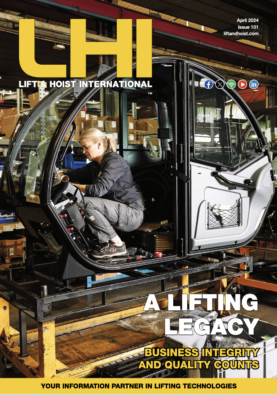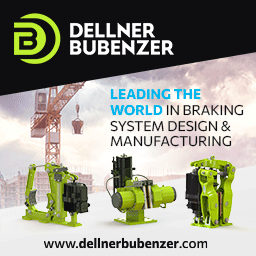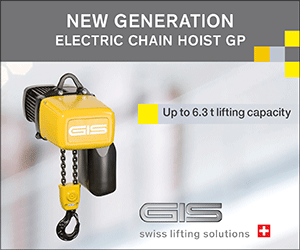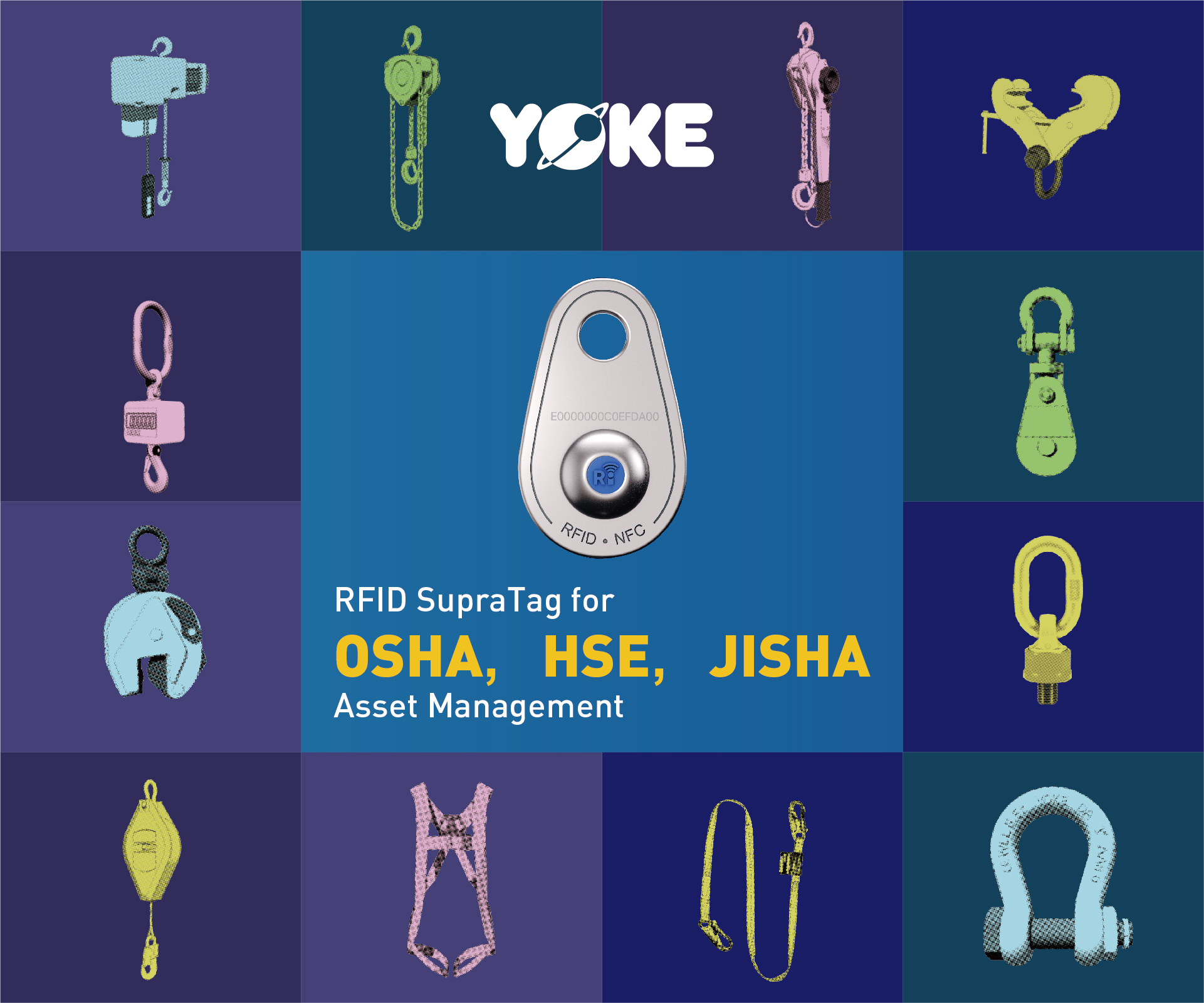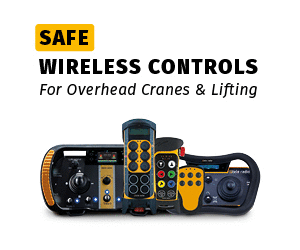)
Passion for a safe reality
Jim Colvin, CEO of Serious Labs, talks to Maria Hadlow about a passion for training, safety and leveraging virtual reality simulation to create training solutions for today and the future.
If you have been fortunate enough to meet Jim Colvin or seen him give a presentation at a conference or exhibition, you will be unusual if you have not been swept along with his energy and enthusiasm. His passion for virtual reality (VR) simulation training, safe working and the technologies and skills that will drive the development of industry in the future are contagious.
“I am an enthusiastic advocate because I believe in what we do,” he says.
Jim was born and grew up on Vancouver Island, his mother was a teacher and his father a blue-collar worker. “I grew up knowing my father’s working environment was dangerous. Every day he was working on or around equipment that was inherently dangerous and for which there was no proper training. To us, as a family we just wanted Dad to get home every night. Now I’m just trying to apply that everybody who has to get home every night because somebody is waiting for them.
“That is our mantra – our mission.”
Jim’s powerful dynamism is tempered by a natural modesty – he rejects the idea that his personality has played a part in driving the increasing acceptance of VR simulation as an important training tool.
“I don’t know how important I am to the ultimate message,” he says, “but I certainly like to advocate for safety and competency It’s a win – win. People who are safe and better operators do the job better and faster and safer – everyone wins. That person gets home at night, that site owner gets the job done more competently. More skilled safe workers means a better market offering for employers and business owners.
“Whether it’s operating a crane or a boom lift or a forklift truck you should do it as competently, efficiently, effectively and safely as you can.”
On leaving high school and with no firm path in mind, Jim worked in London at the Canadian pub in Covent Garden. He went on to study law in England focusing on technology and did a post graduate degree in technology law. After doing his articles in Alberta, Canada, Jim practiced law in Canada and in Silicon Valley during the dotcom boom.
“I was asked to take over the CEO role of a client company in the business of industrial technology for logistics and distribution. That’s where I sharpened my teeth on building technology companies.”
On coming from legal background with a technology specialism Jim says, “It was like understanding the rules of a sport before you play the sport. To know about intellectual property rights from a general business lens a good background to have.
My current role at Serious Labs is an amalgam of all the experiences I’ve had. My father operating equipment whether he was trained or not, my mother being an educator – focusing on learning to do things the right way and my own law and technology experience has created a mosaic of what I bring to the table at Serious Labs,” he says.
“It’s why I find this business so fascinating.”
Having exited his previous company Jim was taking some time off – to decide what he wanted to do, when he was approached by couple of other investors who wanted to put a small fund together to find interesting technology players which would be a good investment. Through a former client – an entrepreneur in residence at the University of Calgary he found a small, company called 3D Interactive based in Edmonton, Alberta doing amazing things in the simulation world using video game technology.
“My experience of VR and simulation at that time was airplane simulators or rides you might see at Disney,” says Jim.
“I took a look at what the company was doing. They were able to take video game platforms and iterate very quickly, with incredible resolution and frame speed, very realistic simulations – it was very immersive – just in flat screen on laptops at the time, and I thought, this could really have a significant application if it could be scaled up.
“I recommended 3D Interactive to my investment partners and in 2011/12 we took the little company and never looked back.”
Since taking on the company technology has moved on allowing Serious Labs to develop even more immersive simulations. “Virtual reality came along after I joined 3D Interactive,” says Jim. “Even now VR – as a media to deliver training – is quite nascent, still in its early stages and people don’t understand it. Heavy/traditional industries can be slow to move, they have been doing things in a certain way for a long time.
In traditional learning, you sit in a classroom while someone who has operated equipment takes you through it. Ultimately, they take you out to the machine where you get a chance to practice – then you take your test.
“This method has been reasonably successful to-date, but new modalities are being recognised more and more because they are efficient, effective, scalable and objective. Training is the same every time, the test is the same – the subjectivity is removed – no bad instructor on a bad day.”
Currently Serious Labs offers VR training simulators for cranes, mobile elevated work platforms (MEWPs) with forklift truck simulators rolling out this year.
There are MEWP training simulators for boom lifts, rough terrain scissors and a slab scissor.
A few years ago, Serious Labs partnered with ITI (Industrial Training International) and have developed nine crane models including: overhead gantry, boom truck and carry deck.
“ITI is an excellent partner,” says Jim. “They work with us to develop the product and do all the sales and marketing.”
Serious Labs is developing its forklift simulator with partner United Rentals, “We’ve developed a beta at this stage for a rough terrain forklift and a counterbalanced forklift. We are also developing a narrow aisle counterbalance on a stand-up chassis forklift truck simulator.”
Jim is adamant about the importance of working with individuals and companies who are experts in their field in order to create a realistic simulator experience.
“For simulation to be powerful it has to be completely immersive,” says Jim. “You have to believe that you are really there because it triggers a part of the brain which isn’t activated in a passive learning environment. For that to occur the experience has to be very realistic – take you to another place. When you have a person in that state you need to train them with everything as realistic as they would find in the real world.
“It is critical that you work with subject matter experts and OEMs to make sure that the tactile experience is exactly the same as it would be on an actual piece of equipment – what you see and most importantly what you feel.
“There is a syndrome called simulation adaptation syndrome, which is like car sickness – only more acute. It is what happens when what you see on the simulator is not in concert with what you feel (like reading in the back seat of a car only way worse).
“We are world leaders in that arena – we can replicate the feeling of motion in all the equipment we simulate using actuators so that the users’ eyes and physical sensations are experiencing the same thing.”
“We work closely with equipment experts, but we also have our own experts. Darren Verschuren, our head of international sales, based in the UK, has years of experience – he knows if simulated equipment is tuned to the actual experience.”
Serious Labs has not escaped the effects of Covid-19. “there have been positives and negatives,” says Jim. “We were at the ConExpo exhibition in Las Vegas when the world stopped.”
“To start with capital budgets were stopped and we had to lay-off some staff – they are mostly all hired back now.
“However, the momentum and desire are here and the new modalities that have come to the fore during Covid such as, e-learning, single use simulators rather than group instruction and group participation, are here to stay.
“Obviously it’s a tragic time and everybody is trying to cope but, if there is a silver lining, we believe that the genie is out of the bottle and we are not going to go back to traditional ways of doing things.
“We are not using technology for technology’s sake, now we can see the real value like IPAF has when it approved our simulators to train and test someone for the PAL+ advanced access license. You do not need half acre of land and a whole day – when it can come to you.”
“Covid has put us a year behind in revenue but accelerated us three years in awareness and adoption – I’ll take that trade every time,” says Jim. “I don’t want another international pandemic to make it happen!” he adds earnestly.
VR simulation training can help combat some of the most prevalent industry issues – in particular skill shortage. A simulator can be located almost anywhere, a classroom, in a mobile unit, in a site office on a construction site. Learning on a simulator may attract recruits to the industry who may not have been able to access training in the past or who may have found the traditional training environment intimidating.
Competency too can be easily tested particularly if the equipment being used is used only infrequently. A site manager can assess is an employee is competent to go on site, needs more practice or needs retraining.
Serious Labs is bringing a new VR simulator to the market this year, which addresses these issues for truck drivers.
“It is designed to get rid of entry level training, says Jim. There are big trucks and trailers crossing boarders all the time and a driver’s license doesn’t show competency.
“Following serious accident in Canada we have been working with the Canadian Government on a VR simulator that can test competency, but also can bring more people into the industry by taking the training to them: women, new Canadians, younger people, indigenous people. We expect bring it to market by the end of year.”
Jim is looking forward to the challenges of this year and beyond, “The World will try to get back to normal, he says.
“Western government is committing to those infrastructure projects that need to get done.
First world countries are investing in power generation lines and new grid – the world is being rewired, 5G will bring lots of interesting developments, IoT meshed cars will speak to our phones, our phones will speak to our refrigerators – technology is leading the way with monumental changes.
“Lots of people retiring from the industry and there is a whole new influx of workers that train and learn differently – the post millennials who are used to distance learning, VR and simulation.
“We need to keep the momentum going, we have the early adopters now need everybody else.”


